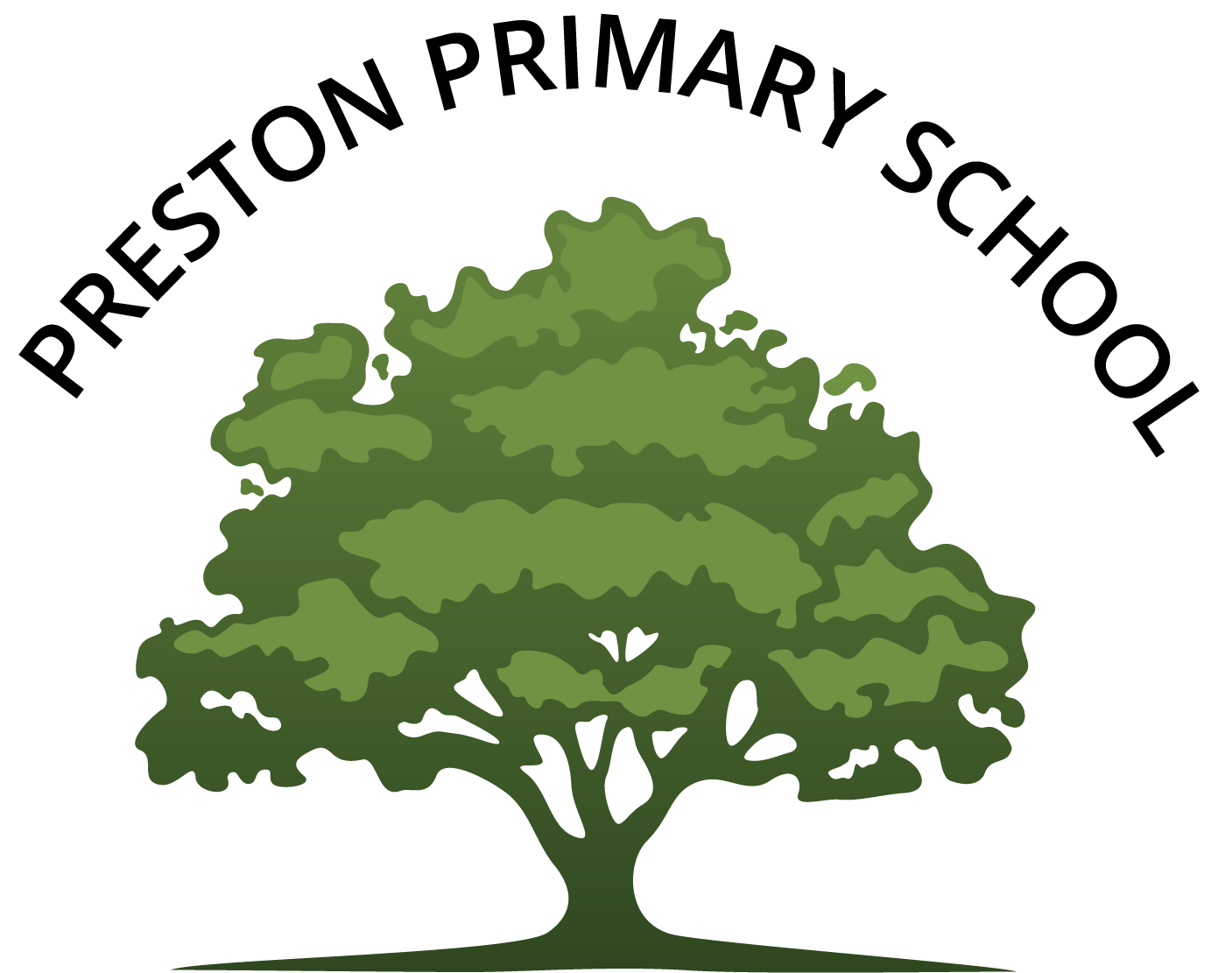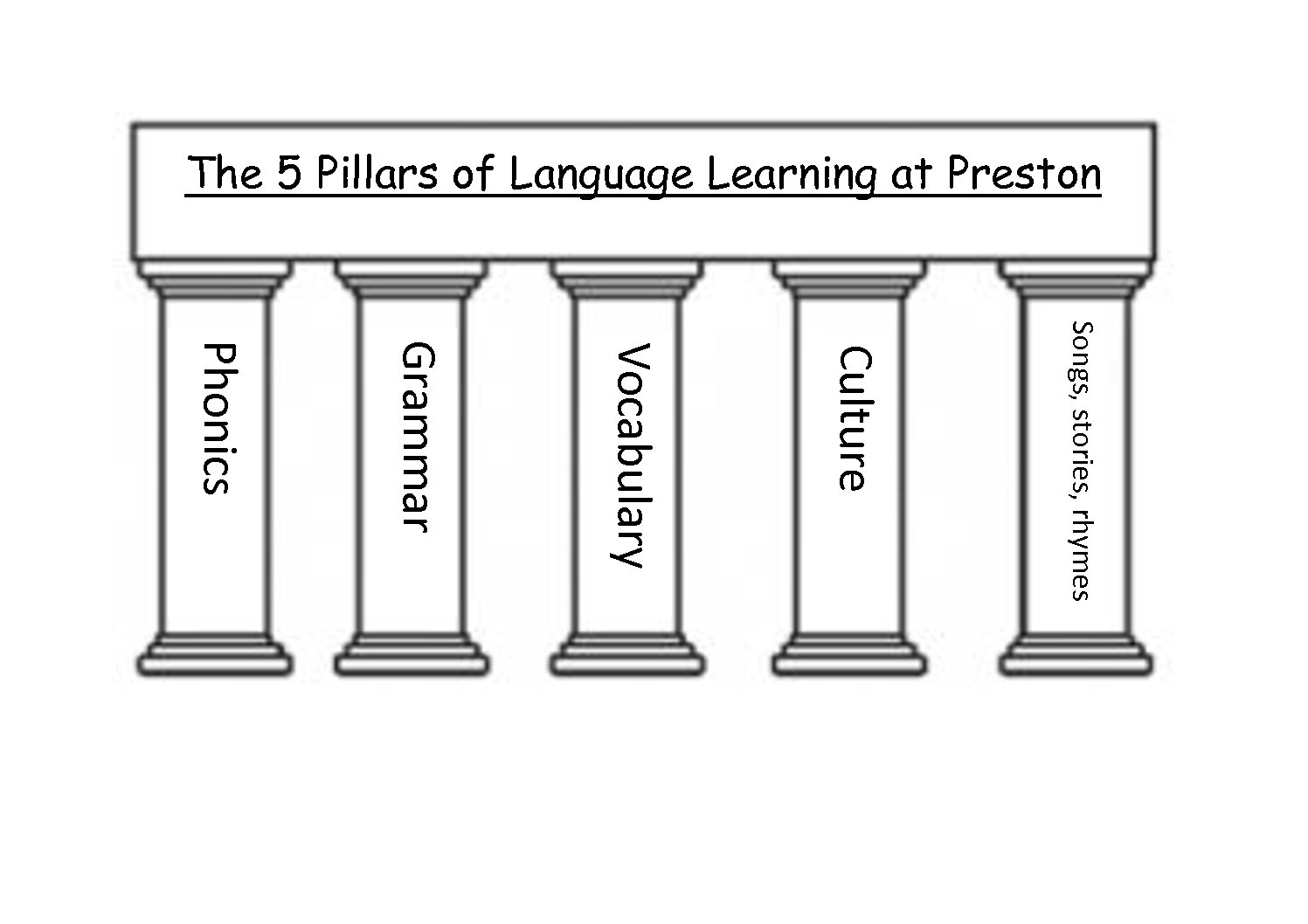Foreign Language – Latin
“FORTES FORTUNA ADIUVAT”
Fortune favours the brave!
Latin at Preston is an important part of both our curriculum. It has been a considered choice for our school community, as we believe that the teaching of Latin best meets the needs of our children, when choosing a Language to teach at Key Stage 2 and to meet the National Curriculum Requirements. We firmly believe that teaching Latin as our ‘Language’ facilitates children to develop a linguistic foundation for reading comprehension and an appreciation of classical civilization: our children have as much right to a strong Classics Education as any. Children will learn the context in which language is rooted, be it English or any other Latinate language going forward.
Intent
Language learning is a skill that is vital for the globalized world of the 21st century. It enables us to communicate with others thus breaking down barriers and in turn increasing interracial tolerance.
Through songs, games, practical and fun activities, we aim to ignite curiosity and develop a lifelong interest in language learning, exposing children to a wide range of different languages (including BSL) throughout their time at Preston.
In KS2, children will be given opportunities to acquire and develop language skills with increasing confidence and competence, with Latin being the language chosen to be taught in depth, through the use of Maximum Classics . It has been a considered choice for our school community, as we believe that the teaching of Latin best meets the needs of our children, when choosing a Language to teach at Key Stage 2 and to meet the National Curriculum Requirements. As we cannot guarantee which languages children have experience of, or will go on to study in their next school, learning Latin provides no lost learning time – and a firm foundation for study of most languages at KS2 or KS3. The Language Trends Survey highlighted that only 4% of secondary schools have all Year 7’s start their KS3 curriculum with a congruent language been taught at Key Stage 3. We have a clear understanding and documentation of how the teaching of Latin supports the national curriculum expectations for Languages, but also the links to the English Curriculum (Grammar and Spelling in particular) and the explicit links to French – which are a useful aid for receiving schools who teach French as their KS2 or KS3 chosen language.
Delivery of the Foreign Language curriculum
At Preston Primary School learning a language is fun! We know that a significant demotivating factor for children learning a second language is fear of mis-pronunciation and the importance of accent. Latin diminishes these issues. Approximately 60% of English words have a Latinate roots, giving children a significant ‘head start’ in the learning of Latin. Latin is different, exciting and most parents at our school have no or limited experience of Latin in their own education. As such, we are primed to set the tone and perception of the subject – and to support parents to understand and value its importance too. The teaching of the Latin curriculum has carefully planned stories and cultural sessions interwoven and embedded throughout the programme in order to ignite an interest in an appreciation of classical civilisation. We believe that the historical language, knowledge understanding from these sessions is vital to develop our children’s cultural capital beyond our history curriculum. Children develop a rich bank of knowledge linked to fables, myths and significant classical people and events. This important part of our classics education provides our children with a depth of classical knowledge and confidence and ‘hinterland’ that many children in primary schools do not develop. In order to prepare our KS2 children for the new subject, children in Year 2 complete a ‘Word Roots’ course in the summer term of Year 2. This ignites children’s curiosity and begins to develop an early schema as to the design and origins of our language.
Long Term Framework
As Latin is new this year all year groups are working through the following four units. Before beginning these all classes have completed the foundation unit on root words
- Unit 1 – The origins of the langauge
- Unit 2 – Present tense verbs
- Unit 3- Verbs and adverbs
- Unit 4 – Subject and Object nouns
Following this a long term framework will be built in with Years 4-6 moving on to the next set of units. All staff are trained prior to teaching the units from our partnership with Maximum Classics.
Academic Year 2025 – 2026
| Block 1 | Block 2 | Block 3 | Block 4 | |
| Year 2 | Word Roots | |||
| Year 3 | The origins of language Achilles | Present tense verbs Gods, Orpheus | Verbs and adverbs Mosaics, midas | Subject and Nouns Roman Army, Boudicca |
| Year 4 | Simple sentences in Latin Food, Town Mouse and Country Mouse | Numerals & ‘to be’ Olympics, Hercules | Adjectives and agreement Homer & epic, The Trojan Horse | Prepositions Millefiori, Hannibal |
| Year 5 | Simple sentences in Latin Food, Town Mouse and Country Mouse | Numerals & ‘to be’ Olympics, Hercules | Adjectives and agreement Homer & epic, The Trojan Horse | Prepositions Millefiori, Hannibal |
| Year 6 | Simple sentences in Latin Food, Town Mouse and Country Mouse | Numerals & ‘to be’ Olympics, Hercules | Adjectives and agreement Homer & epic, The Trojan Horse | Prepositions Millefiori, Hannibal |
Staff Expertise and Pedagogy
The OFSTED Research Review into Languages in English schools highlighted that low staff experience, confidence and subject knowledge were key stumbling blocks for many schools in providing an effective language curriculum and education. Latin implementation is guided carefully in our school, through a strong partnership with the ‘Classics for All’ charity. The CPD curriculum for teachers is progressive, and delivered before the point of teaching – so that learning is relevant and recent for the implementation of the planned curriculum. Importantly, we also have a network of schools within our Trust who deliver the Latin curriculum – networking, induction and ongoing peer support are key factors of in the success of the development of Latin across our school. The research review also highlighted that poorly designed language curricula also can impede successful language learning at Key Stage 2. As such, our Latin curriculum has been designed by the national experts in Latin education – based at the Classics for All charity. The clear and progressive planning, aligned with detailed resourcing allows teachers to deliver the programme with confidence and fidelity.
How can I support my child?
A guide for Latin pronunciation can be found here
A Latin dictionary can be found here
Listed below are some great family days out which will enable your children to apply and develop their linguistic skills. We hope you enjoy these days out as much as we do!
Vindolanda Roman Fort, Hexham
A Roman fort and museum filled with Roman attefacts including letters for the children to read and translate. Stunning gardens. An exciting fort for children of all ages to recreate battles and get a good feel for Roman life. Ideal for KS2 children.
Arbeia Roman fort, South Shields
https://arbeiaromanfort.org.uk
Segedunum, Tyneside
https://segedunumromanfort.org.uk
Hadrian’s Wall – Northumberland
English Heritage – Hardrans Wall
Choose from a range of stunning walks with lots of exciting things to see along the way!
Eboracum, York
http://www.castlesfortsbattles.co.uk/yorkshire/york_walls_eboracum.html
York city is steeped in Roman and Viking history. Take a look at the city walls, visit the Jorvic Viking Centre and DIG while you are there too. You could even do a spot of shopping. This is a great day out for children of all ages.



